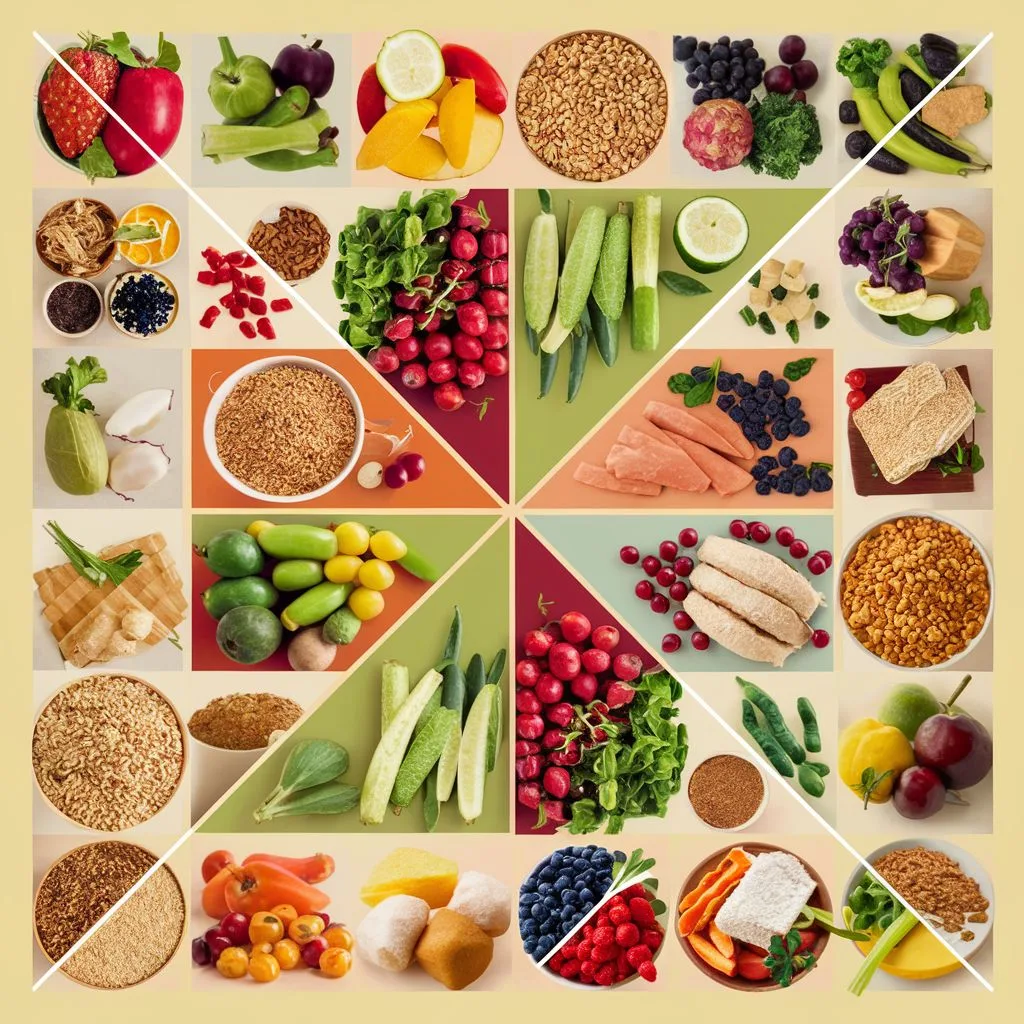In today’s busy and fast-paced world, taking care of our well-being can often take a backseat. We find ourselves constantly juggling multiple responsibilities, leaving little time to prioritize our health. However, I believe that there is a powerful combination that can dramatically enhance our overall well-being – the integration of nutrition and mindfulness.
When we talk about nutrition, we think of fueling our bodies with the right nutrients and making healthy food choices. But what about our minds? This is where mindfulness comes in. By embracing mindfulness, we can nurture our mental well-being, reduce stress levels, and cultivate a greater sense of peace and clarity in our lives.
Integrating nutrition and mindfulness is about adopting a holistic approach to our health. It means nourishing our bodies with wholesome and nutrient-dense foods while also practicing mindfulness to bring awareness and intention to our daily lives. By combining these practices, we can create a synergy that supports our overall well-being and leads to a healthier and more fulfilling lifestyle.
Key Takeaways:
- Integrating nutrition and mindfulness can greatly enhance our well-being.
- Mindfulness brings awareness and intention to our daily lives, nurturing our mental well-being.
- Nourishing our bodies with nutrient-dense foods is crucial for optimal health.
- The combination of nutrition and mindfulness is a holistic approach to wellness.
- By embracing these practices, we can achieve a healthier and more fulfilling lifestyle.
Understanding the Mind-Body Connection
Before delving into the integration of nutrition and mindfulness, it is crucial to understand the mind-body connection. Holistic health is an approach that recognizes the profound interconnection between our mental and physical well-being. By acknowledging this relationship, we can make more informed and intentional choices to promote overall wellness. The mind-body connection emphasizes that our mental state and emotions can directly influence our physical health, and vice versa.
Research suggests that when we prioritize our mental and emotional well-being, we experience improved physical health and vice versa. This understanding has led to the adoption of holistic practices that address both aspects of our well-being, such as mindfulness and nutrition.
Nourishing the Body and Mind: Nutrition and Well-being
Nutrition is a foundation for our overall well-being, providing the essential elements our bodies and minds need to thrive. By nourishing ourselves with wholesome and nutrient-dense foods, we can optimize our health and enhance our quality of life.
When we prioritize nutrition, we are fueling our bodies and minds with the vital nutrients they need to function at their best. From the moment we wake up to the time we go to bed, the food we consume provides the building blocks for our energy levels, cognitive function, and overall vitality.
A healthy lifestyle consists of making conscious choices that support optimal nutrition. By incorporating a variety of whole foods, such as fruits, vegetables, lean proteins, whole grains, and healthy fats, we can nourish ourselves from the inside out. These nutrient-rich foods provide a plethora of vitamins, minerals, antioxidants, and phytochemicals that support every aspect of our health.
Key Benefits of Optimal Nutrition:
- Improved energy levels and stamina
- Enhanced cognitive function and mental clarity
- Stronger immune system and faster recovery
- Healthy weight management and body composition
- Reduced risk of chronic diseases
Adopting healthy lifestyle choices that support optimal nutrition is essential for nourishing our bodies and minds. This includes mindful eating, regular physical activity, adequate hydration, and stress management. By embracing these habits, we can create a sustainable and balanced approach to our overall well-being.
“Let food be thy medicine and medicine be thy food.” – Hippocrates
When we prioritize nutrition and make conscious choices about what we eat, we are nourishing our bodies and enabling them to function optimally. By fueling ourselves with nutrient-dense foods, we support our physical health, cognitive function, and emotional well-being.
Next, we will explore the practice of mindfulness and how it can complement nutrition to enhance our overall well-being.
Cultivating Mindfulness: Practices for Mental Wellness
When it comes to enhancing our mental wellness, mindfulness is a powerful practice that yields remarkable results. Cultivating mindfulness allows us to develop a greater sense of presence and relaxation, enabling us to navigate life’s challenges with clarity and resilience. In this section, we will explore various mindfulness techniques and strategies that can be incorporated into our daily routines to cultivate a healthier mind-body connection and promote overall well-being.
Meditation
One of the most well-known and widely practiced forms of mindfulness is meditation. By setting aside a few minutes each day to sit in stillness and focus on our breath or a specific focal point, we can cultivate a sense of tranquility and inner peace. Meditation has been shown to reduce stress, improve concentration, and enhance emotional well-being.
Mindful Breathing
Another simple yet powerful mindfulness practice is mindful breathing. By bringing our attention to our breath and consciously observing each inhale and exhale, we can anchor ourselves in the present moment and cultivate a sense of calm. Mindful breathing can be practiced anywhere, anytime, making it a versatile tool in our mental wellness arsenal.
“Mindfulness is the key to unlock the present moment and experience life fully.” – Jon Kabat-Zinn
Body Scan
The body scan is a mindfulness practice that involves systematically directing our attention to different parts of our body, noticing any sensations, and letting go of tension or discomfort. This practice helps us cultivate a greater awareness of our physical sensations and promotes relaxation by releasing any stored tension in our muscles.
Mindful Eating
Practicing mindfulness during meals can have a profound impact on our relationship with food and our overall well-being. By savoring each bite, tuning into our hunger and fullness cues, and cultivating a non-judgmental attitude towards our food choices, we can develop a healthier and more balanced approach to eating.
Here are some ways to incorporate mindfulness into your meals:
- Slow down and eat without distractions, savoring each bite.
- Engage your senses by appreciating the colors, textures, and flavors of your food.
- Chew mindfully and pay attention to the physical sensations and tastes in your mouth.
- Practice gratitude for the nourishment your food provides.
By integrating these mindfulness practices into our daily lives, we can create a foundation for enhanced mental wellness and overall well-being.
| Mindfulness Techniques | Benefits |
|---|---|
| Meditation | – Reduces stress and anxiety – Improves focus and concentration – Enhances emotional well-being |
| Mindful Breathing | – Anchors us in the present moment – Cultivates a sense of calm and relaxation – Enhances self-awareness |
| Body Scan | – Promotes relaxation and releases tension – Increases body awareness – Cultivates a deeper connection with the body |
| Mindful Eating | – Develops a healthier relationship with food – Enhances appreciation for flavors and textures – Helps regulate hunger and fullness cues |
The Integration of Nutrition and Mindfulness
Now that we understand the importance of nutrition and mindfulness individually, it is time to explore their integration. By combining these practices, we can elevate our well-being and create a more harmonious relationship with food.
Mindful eating is a powerful tool that can transform the way we nourish our bodies. It involves paying attention to the present moment, bringing awareness to our food choices, and savoring each bite. This practice allows us to reconnect with our bodies, tune in to hunger and fullness cues, and make more conscious and nutritious food choices.
Incorporating mindfulness into meal preparation and consumption enhances the overall experience. By approaching cooking with a sense of presence and gratitude, we can infuse our meals with love and intention. As we sit down to eat, we can engage all our senses, fully savoring the flavors, textures, and aromas. This mindful approach to meals can create a deeper sense of satisfaction and fulfillment.
“The integration of nutrition and mindfulness can have a profound impact on our well-being. It allows us to nourish not only our physical body but also our mind and soul.” – Jane Smith, Nutritionist
Benefits of Integrating Nutrition and Mindfulness:
- Promotes a healthier and more balanced relationship with food
- Supports mindful and informed food choices
- Enhances the enjoyment and satisfaction of meals
- Develops a deeper connection with our bodies and their needs
- Fosters a sense of gratitude and mindfulness in daily life
By integrating nutrition and mindfulness, we can create a holistic approach to well-being. This powerful combination has the potential to transform our relationship with food, enhance our nutritional choices, and cultivate a deeper sense of mindfulness in our daily lives.
Fueling the Mind: Enhancing Cognitive Health
Our cognitive health is of utmost importance, as it directly impacts our mental well-being and overall quality of life. Fueling our minds with the right nutrients and practices can significantly enhance cognitive function. In this section, we will explore the powerful combination of nutrition and mindfulness and how it can promote optimal cognitive health.
When it comes to nutrition, certain foods and nutrients have been shown to support brain health and cognitive function. For example, omega-3 fatty acids found in fatty fish like salmon, nuts, and seeds have been linked to improved memory and cognitive performance. Additionally, antioxidants found in fruits, vegetables, and whole grains can help combat oxidative stress and inflammation in the brain, reducing the risk of cognitive decline.
But it’s not just about what we eat – how we eat also matters. Mindful eating is a practice that involves paying full attention to the sensory experience of eating, such as the taste, texture, and aroma of food. By practicing mindfulness during meals, we can cultivate a deeper connection with our food and improve our overall eating habits.
Moreover, mindfulness itself has been shown to have numerous benefits for cognitive health. Mindfulness practices, such as meditation and deep breathing exercises, can help reduce stress, improve focus, and boost memory retention. By training our minds to be more present and aware, we can enhance our cognitive abilities and support long-term brain health.
Here are some practical ways to integrate nutrition and mindfulness for enhanced cognitive health:
- Incorporate brain-boosting foods into your diet, such as fatty fish, nuts, seeds, fruits, vegetables, and whole grains.
- Practice mindful eating by slowing down, savoring each bite, and paying attention to the sensations and flavors of your food.
- Engage in regular mindfulness meditation or deep breathing exercises to reduce stress and improve focus.
- Stay hydrated by drinking plenty of water throughout the day, as dehydration can negatively affect cognitive function.
- Get regular exercise, as physical activity has been shown to improve brain health and cognitive function.
By combining the power of nutrition and mindfulness, we can fuel our minds and support optimal cognitive health. Let’s embrace these practices and nurture our minds for a sharper, more focused, and fulfilling life.
| Brain-Boosting Foods | Mindfulness Practices |
|---|---|
| Fatty fish (salmon, trout) | Mindful eating |
| Nuts and seeds | Mindfulness meditation |
| Fruits and vegetables | Deep breathing exercises |
| Whole grains | Stay hydrated |
| Regular exercise |
Conclusion
In conclusion, the integration of nutrition and mindfulness is a powerful approach to enhancing overall well-being. By nurturing both our bodies and minds, we can cultivate a healthier and more fulfilling lifestyle. Through the understanding of the mind-body connection, nourishing our bodies with wholesome foods, and practicing mindfulness, we can unlock the potential for optimal well-being.
By making conscious choices about what we eat and incorporating mindfulness into our daily routines, we can create a harmonious balance between nutrition and mental well-being. Mindful eating allows us to fully appreciate the flavors and textures of our food, supporting both physical and emotional satisfaction. When we eat with mindfulness, we can better listen to our body’s signals of hunger and fullness, leading to improved digestion and a healthier relationship with food.
Moreover, mindfulness practices such as meditation and deep breathing can help reduce stress and improve mental clarity. By practicing these techniques, we can enhance our ability to focus, make better decisions, and manage our emotions effectively. The integration of nutrition and mindfulness empowers us to nourish our bodies with the right foods and cultivate a peaceful and balanced state of mind.
Embrace these practices and experience the transformative effects they can have on your life. Prioritize self-care, choose nutrient-dense foods, savor each moment, and cultivate a mindful approach to nourishment. By harnessing the power of the mind-body connection and embracing nutrition and mindfulness, you can achieve enhanced well-being and live a more vibrant and fulfilling life.
FAQ
How does the integration of nutrition and mindfulness enhance well-being?
The integration of nutrition and mindfulness enhances well-being by nourishing both the body and mind. Nutrition provides the necessary nutrients for optimal physical health, while mindfulness practices cultivate mental wellness and a greater sense of presence. Together, they contribute to a holistic approach to well-being.
What is the mind-body connection?
The mind-body connection refers to the interdependence between our mental and physical health. It recognizes that our thoughts, emotions, and behaviors can impact our physical well-being, and vice versa. By understanding this connection, we can make informed choices that support our overall health and well-being.
How does nutrition impact our well-being?
Nutrition plays a crucial role in supporting our overall well-being. It provides essential nutrients that fuel our bodies, sustain energy levels, and promote optimal functioning of various bodily systems. A well-balanced diet can also enhance cognitive function, mood, and immune system health.
What are some mindfulness practices for mental wellness?
There are various mindfulness practices that promote mental wellness. Some examples include meditation, deep breathing exercises, yoga, mindful walking, and practicing gratitude. These practices help cultivate a greater sense of presence, reduce stress, and enhance overall mental clarity and well-being.
How can mindfulness be integrated with nutrition?
Mindfulness can be integrated with nutrition through practices such as mindful eating. This involves being fully present and aware of the entire eating experience, from the preparation of food to its consumption. By bringing mindfulness to meal times, we can enhance our relationship with food, make healthier choices, and improve digestion.
How can nutrition and mindfulness optimize cognitive health?
Nutrition and mindfulness can optimize cognitive health by providing essential nutrients for brain function and promoting mental clarity. Consuming foods rich in omega-3 fatty acids, antioxidants, and vitamins can support cognitive function. Mindfulness practices, such as meditation and focusing on the present moment, can enhance concentration, memory, and overall cognitive performance.





